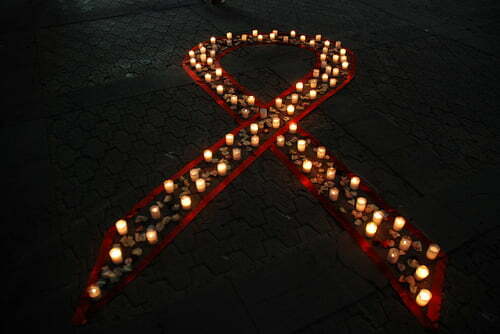Sexual Health
Two Cases Of Criminal HIV Infection
Is infecting another person with HIV tantamount to assault with a deadly weapon? Murder?
Canadian jurors found Johnson Aziga guilty on two counts of first-degree murder and 10 of the 11 counts of aggravated sexual assault that he faced. According to the Vancouver Sun, legal observers say Aziga could very likely be the first person in the world to be found guilty of murder for lethally infecting a partner with HIV.”
Legal experts quoted in the article wonder if this could be a dangerous precedent. Prosecuting people for infecting others with HIV could deter deter people from seeking treatment or disclosing their HIV status to public health authorities as well as increasingly the amount of stigma already around the disease.
And this week, German pop star Nadja Benaissa was charged with causing serious bodily harm by sleeping with at least three men without telling them she was HIV positive and without using contraception.
Obviously, knowingly infecting another person with an infectious disease is a malicious act, be it HIV or another chronic illness like hepatitis, but how do we draw the lines for prosecution?
Could a person be punished for infecting others when they were unaware of their HIV status, as so many people are?
HIV Infection – Who Knows Their Status?
According to the CDC, approximately one in five (21%) people living with HIV in 2006 were unaware of their infections. To what extent would those living with HIV have to disclose their status?
Ideally, they would disclose their status to every partner and use protection to help stop the spread of the disease, but does this also mean they would have to disclose their status at work in case of an accident despite the potential repercussions? To their landlords? The list goes on and on and the risks of disclosing an HIV positive status are still very real.
In that ideal world, there would also be no stigma around the illness; unlikely since it is spread sexually (traditionally, hard illness to remove stigma from, since sex and stigma often go hand in hand) and through other behaviors with negative labels.
HIV/AIDS prevention organizations and researchers continue to examine this stigma in the ongoing effort to address the larger cultural issues behind HIV/AIDS: economics, poverty, inequality (both racial and gender), inadequate health care, and other large scale issues that contribute to this epidemic.









